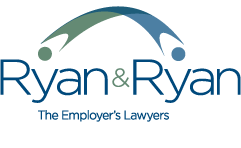The Second Circuit Court Appeals, in Three D, LLC v. NLRB, recently held that a Connecticut sports bar violated the National Labor Relations Act (“NLRA”) when it terminated two employees for due to their commenting on and ‘liking’ a Facebook post critical of the owner of the sports bar. Specifically, one employee ‘liked’ an ex-employee’s status update stating, “[m]aybe someone should do the owners of [Three D] a favor and buy it from them. They can’t even do the tax paperwork correctly!!! Now I OWE money…wtf!!!!”; and 2) another employee’s comment on the status referencing the owner, “I owe too. Such an a******.” Three D management found out about the posts and terminated both employees.
The Second Circuit agreed with the NLRB that the comment and the ‘liking’ of the post constituted activity protected under the NLRA because they “clearly disclosed the ongoing labor dispute over income tax withholdings . . . ” Further, the Second Circuit agreed that the employees’ Facebook activity was neither “so disloyal as to lose the protection of the [NLRA]” because [the employees] did not make reference to or disparage Three D’s products or services. In addition, the Second Circuit agreed that the comments were not defamatory because there was no basis to conclude that the statements “were maliciously untrue.”
The Second Circuit rejected Three D’s argument that post was not entitled to protection because it contained obscenities that were viewed by customers, distinguishing the instant scenario from a prior decision that the use of obscenities in the presence of customers in customer areas may not constitute protected activity. Specifically, the Second Circuit reasoned that applying that same standard to a Facebook post that customers may potentially see could lead to a chilling effect on online speech. The Court reasoned that although the Facebook posts contained obscenities, they were “not directed toward customers and did not reflect the employer’s brand,” and therefore were within the protections of the NLRA.
